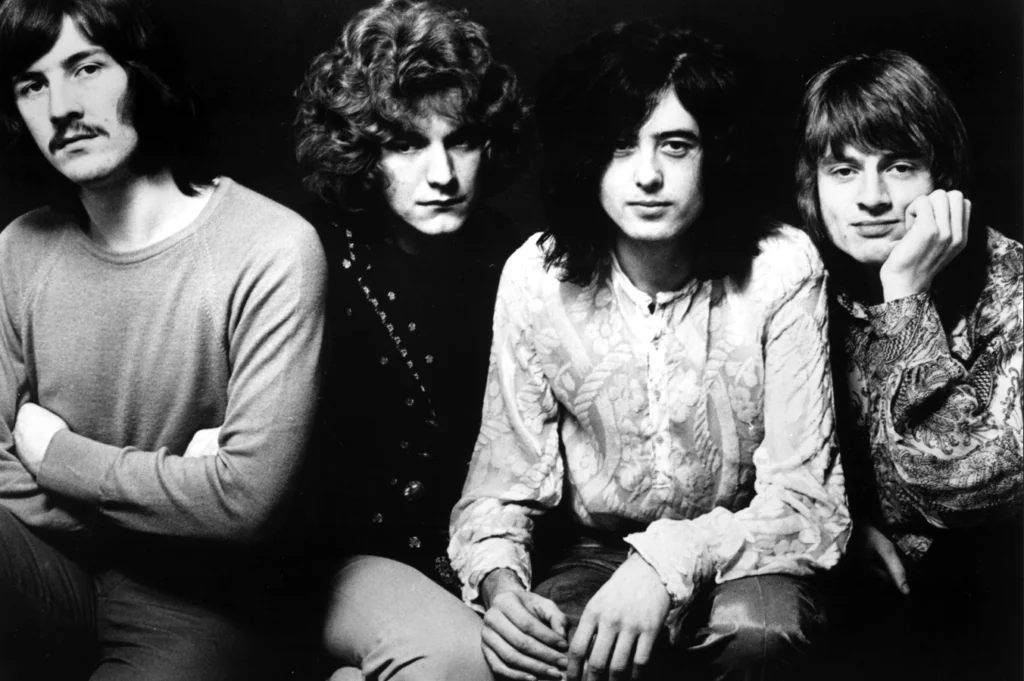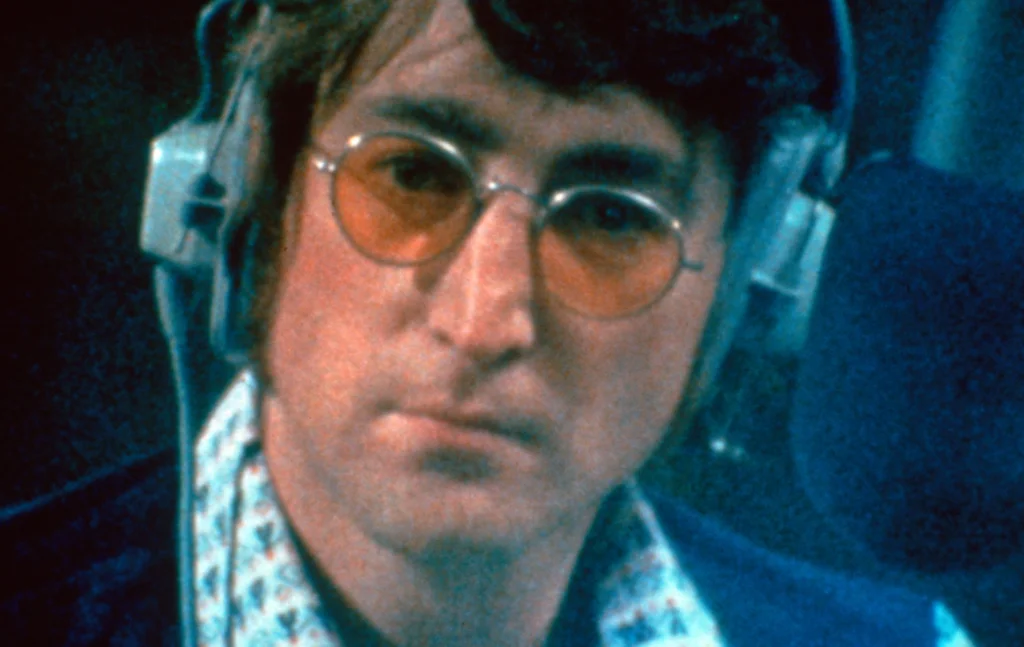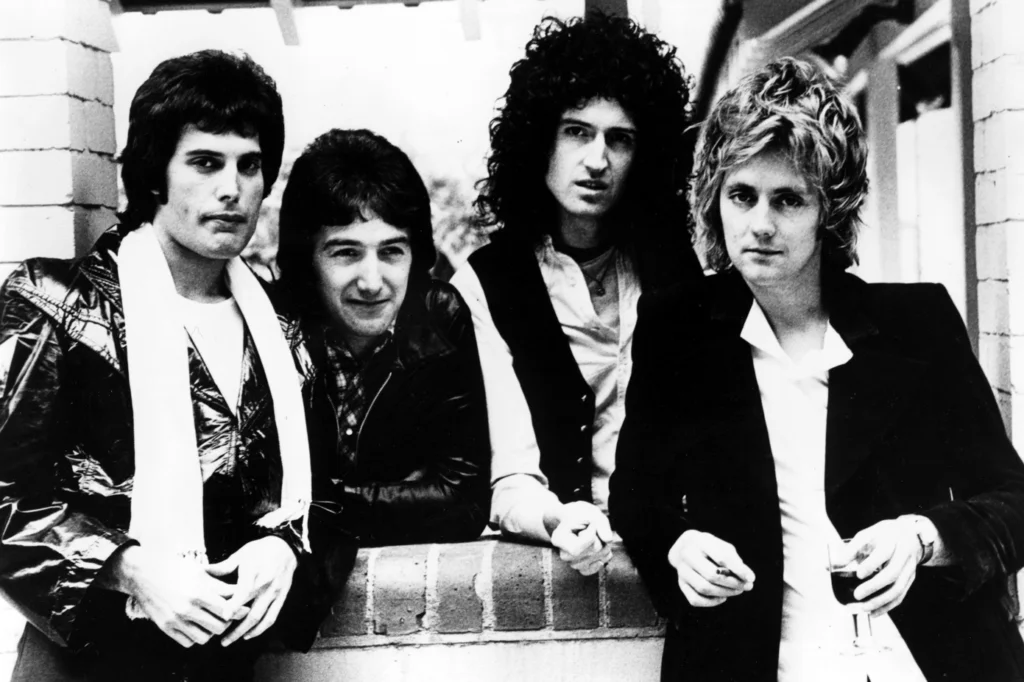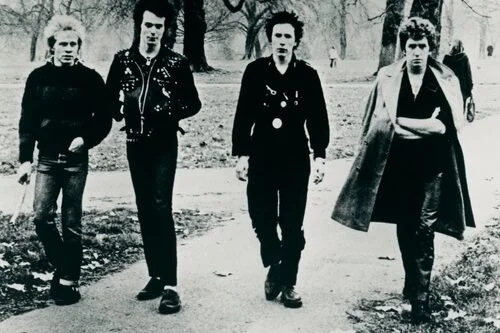1. “Stairway to Heaven” by Led Zeppelin

“Stairway to Heaven” is one of those tracks that truly redefined the rock genre. When it first hit the airwaves in 1971, it captured the essence of a new era in music. With its haunting intro, mystical lyrics, and powerful build-up, it became the anthem of a generation. The song’s intricate guitar work and sudden shift from acoustic to electric was unlike anything audiences had heard before. Its impact on rock music was monumental, influencing countless bands and musicians in the years that followed.
But the influence of “Stairway to Heaven” went beyond just rock—it was a piece of art that made people reconsider how music could evolve. The way it intertwined various styles within one song, blending folk, hard rock, and even elements of classical music, set a precedent for ambitious, genre-defying songs. It became a musical journey that listeners could immerse themselves in, showing that a single track could be as complex and layered as a full album.
2. “Imagine” by John Lennon

John Lennon’s “Imagine” struck a chord with listeners in 1971, offering a vision of a utopian world that felt timeless. The song’s simple, yet profound lyrics called for peace, unity, and hope, resonating with millions around the globe. With its soft piano melody and Lennon’s emotional delivery, “Imagine” became an anthem for social change. It wasn’t just a song—it was a statement about the kind of world people wished to create.
But what truly made “Imagine” revolutionary was its message, which transcended music and entered the realm of cultural discourse. It wasn’t a protest song in the traditional sense; it was a call for personal reflection and societal transformation. The gentle, almost meditative nature of the track encouraged listeners to imagine a world without barriers or conflict, making it a powerful tool for change.
3. “Superstition” by Stevie Wonder

Released in 1972, “Superstition” was a game-changer for Stevie Wonder and the entire funk genre. With its infectious clavinet riff and funky rhythm section, it brought a fresh, energetic vibe to the music scene. Wonder’s unique fusion of soul, funk, and R&B made this track a standout, not just for its grooves, but for the message it carried. The song’s theme—debunking superstitions—resonated with listeners and highlighted Wonder’s ability to address complex ideas in a catchy and accessible way.
What made “Superstition” so influential was how it broke new ground in terms of instrumentation and production. Wonder was known for pushing boundaries in the studio, and this track was a perfect example of his innovation. The song’s distinctive sound—driven by a groovy rhythm and electronic elements—was unlike anything on the charts at the time, changing the way people thought about soul and funk music forever.
4. “Bohemian Rhapsody” by Queen

“Bohemian Rhapsody” by Queen, released in 1975, shattered every expectation of what a rock song could be. It didn’t follow the typical verse-chorus structure that most hits of the time did. Instead, it blended opera, ballad, and hard rock into one six-minute masterpiece. The track’s unpredictability and grandeur made it an instant classic, and its experimental nature captivated listeners worldwide.
The song’s innovative production techniques also made a lasting impact. Queen’s use of multi-tracked harmonies and complex arrangements pushed the boundaries of what was possible in a recording studio. “Bohemian Rhapsody” showed that a song could be both commercially successful and artistically daring, changing the way artists approached songwriting and production for decades to come.
5. “I Will Survive” by Gloria Gaynor

In 1978, Gloria Gaynor’s “I Will Survive” became the ultimate anthem of resilience, changing the way we viewed the disco era. The song’s empowering lyrics, paired with its unforgettable dance beat, became a rallying cry for personal strength and independence. It was more than just a hit—it was a message of survival, both personally and socially. For many, “I Will Survive” became a source of comfort and empowerment, offering a sense of solidarity in times of struggle.
But what truly made this track revolutionary was its crossover appeal. While it became a disco classic, “I Will Survive” also resonated with audiences outside the dance clubs. Its empowering message and catchy melody made it a timeless anthem, beloved by generations of listeners. The song’s influence went far beyond the dance floor, becoming an enduring cultural touchstone for anyone facing hardship.
6. “Anarchy in the U.K.” by the Sex Pistols

When the Sex Pistols released “Anarchy in the U.K.” in 1976, it marked the arrival of punk rock and forever changed the landscape of music. The song’s raw energy, rebellious spirit, and unapologetic attitude were unlike anything the mainstream music scene had seen before. With its aggressive guitar riffs and snarling vocals, it broke all the rules of traditional rock and introduced a new, more chaotic form of self-expression.
“Anarchy in the U.K.” wasn’t just a musical revolution; it was a cultural statement. It gave voice to a generation disillusioned with the establishment and challenged the norms of the time. Its influence on punk and alternative music cannot be overstated, and its impact still resonates in the music industry today, proving that sometimes, the most disruptive songs are the ones that leave the biggest mark.


